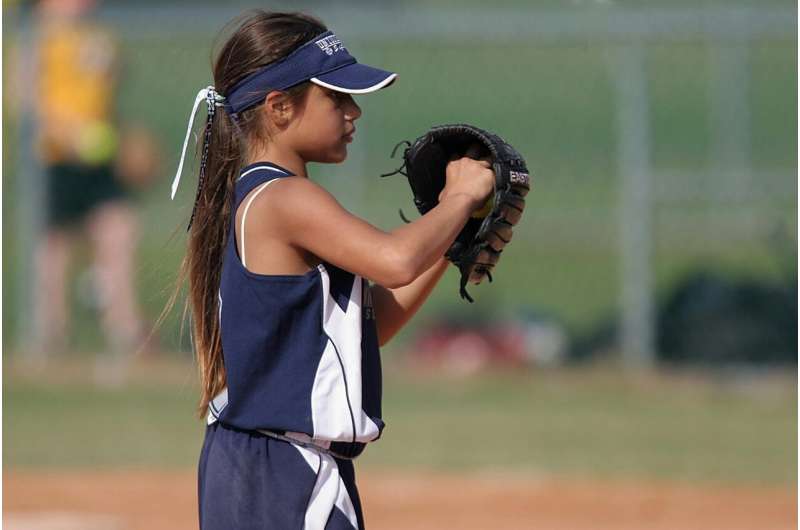This article has been reviewed according to Science X's editorial process and policies. Editors have highlighted the following attributes while ensuring the content's credibility:
fact-checked
peer-reviewed publication
trusted source
proofread
Sport contributes to children's academic success

When they enroll their children in a sports activity, parents hope to see them develop skills to make them stronger and smarter. In sport, youngsters must successfully follow rules, hold back on their wants and needs, and learn to behave. Through contact with peers and supportive coaches, they learn to persist and thrive in the face of difficulty.
But could doing a sport also make them more successful academically, not just in school but in college and beyond? A new Canadian study suggests that yes, it can. The research by a team led by Université de Montréal psycho-education professor Linda Pagani is published this month in Medicine & Science in Sports & Exercise.
Looking at associations between long-term childhood sport involvement during the primary school years and later indicators of school success, the researchers analyzed data from the Quebec Longitudinal Study of Child Development, coordinated and housed by the Institut de la Statistique du Québec.
Some 746 girls and 721 boys born in 1997 or 1998 were followed to see if there were links between participation in a sport between ages 6 and 10 and subsequent academic success through to age 17. And, indeed, there were, in both sexes.
"We found that participation from kindergarten to Grade 4 had a positive effect, above and beyond other factors, right to the end of high school," said Pagani.
Children who regularly practiced a sport were more likely to get better grades and less likely to drop out by their senior year of high school, compared to those who did little or no sports. They also gave more importance to how they did in school and had higher academic aspirations for continuing their studies in college and university.
"Middle childhood is a critical moment in child development," said Pagani, "and parents want their children's free time to count for something. However, until now, with this study, despite substantial investments by parents and communities, there has been no compelling evidence on the unique contribution of youth sport to academic success.
"We now know that by participating in organized sport, youngsters develop a positive self-image and social skills that teach them the importance of teamwork, of taking responsibility and of developing and maintaining relationships—and that this translates into better academic engagement in emerging adulthood."
More information: Linda S. Pagani et al, Middle Childhood Sport Participation Predicts Timely Long-Term Chances of Academic Success in Boys and Girls by Late Adolescence, Medicine & Science in Sports & Exercise (2024). DOI: 10.1249/MSS.0000000000003511




















